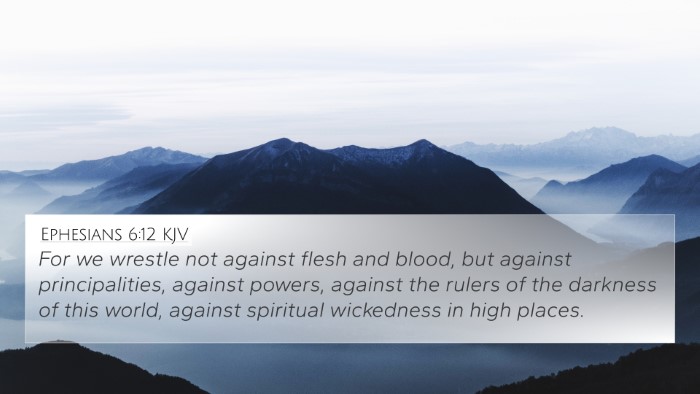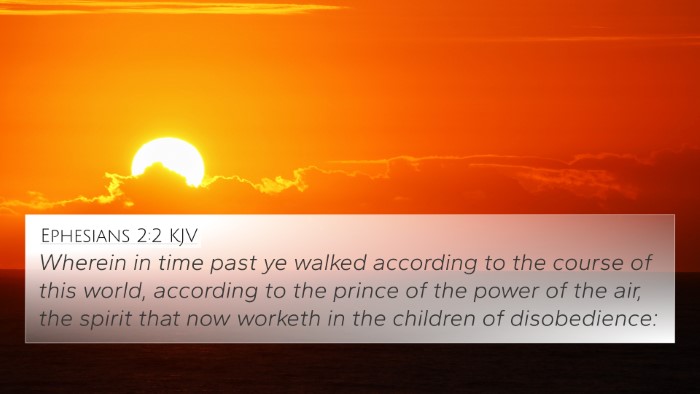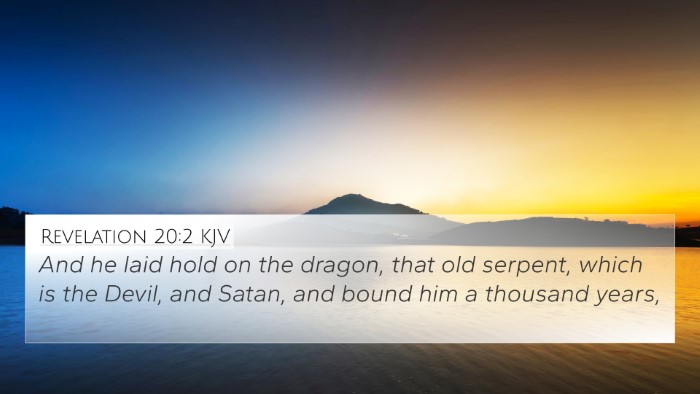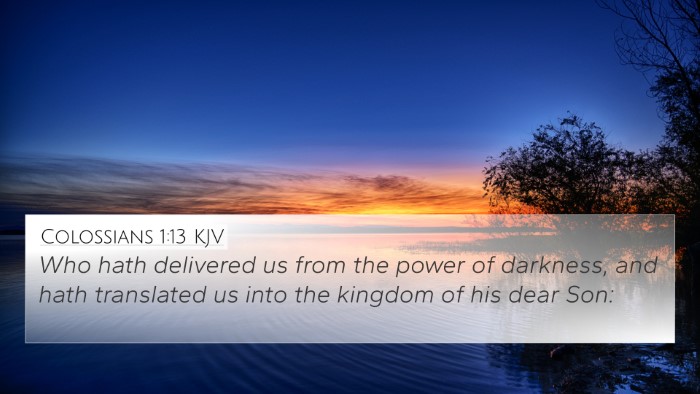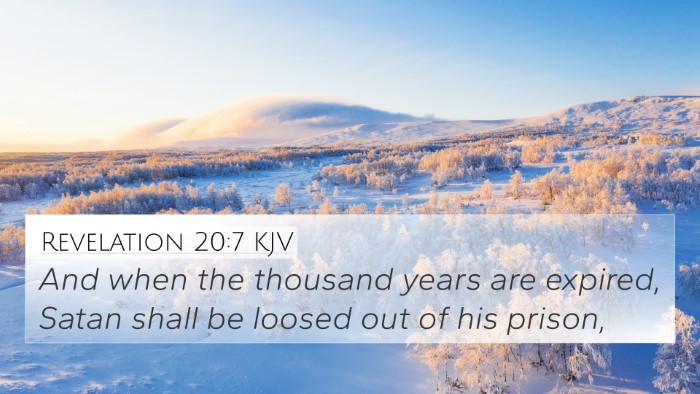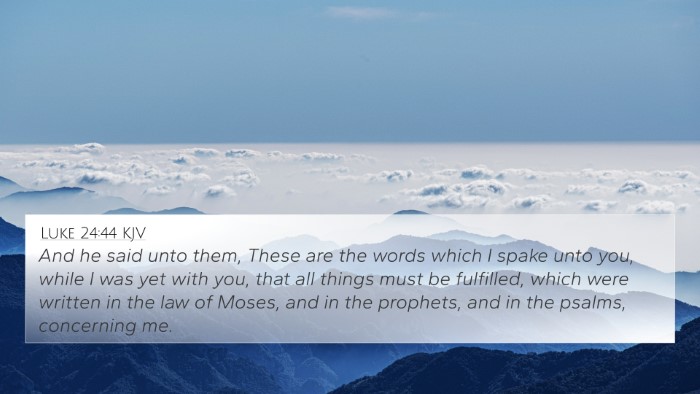Understanding John 14:30
The verse John 14:30 states: "I will no longer talk much with you, for the ruler of this world is coming, and he has nothing in me." This declaration arises in a context where Jesus prepares his disciples for his impending crucifixion and the subsequent events that will unfold. In analyzing this passage, we aim to gather insights from esteemed public domain commentaries such as those by Matthew Henry, Albert Barnes, and Adam Clarke.
Contextual Significance
In the Gospel of John, Jesus often speaks of his relationship with the Father and his mission on earth. This verse indicates a shift in his discourse, highlighting both an acknowledgment of evil and the assurance of his victory over it.
The Ruler of This World
Jesus refers to "the ruler of this world," which is understood by most commentators as a reference to Satan. Matthew Henry notes that this title emphasizes the authority that Satan has over worldly affairs, especially in the lives of those who oppose God.
Albert Barnes elaborates on this theme, seeing Satan’s influence as a potent reality during Jesus' time, and indeed, throughout history. Yet, Barnes points out that Jesus assures us that while Satan may exert influence, it does not pertain to his own character or mission.
Jesus' Authority and Innocence
In concluding his statement, Jesus claims that Satan has “nothing in me.” Adam Clarke interprets this to mean that Satan will not find any ground within Jesus to claim a victory or a hold over him. This reflects Jesus' sinless nature and his unique divinity which sets him apart from humanity.
Cross-Referencing Biblical Texts
Examining John 14:30 reveals connections and themes that resonate within the broader biblical narrative. The concept of evil, authority, and Jesus’ supremacy can be cross-referenced with several scripture passages:
- John 12:31 - "Now is the judgment of this world; now will the ruler of this world be cast out."
- 1 John 5:19 - "We know that we are from God, and the whole world lies in the power of the evil one."
- Luke 10:18 - "And he said to them, 'I saw Satan fall like lightning from heaven.'
- Matthew 4:10 - "Then Jesus said to him, 'Be gone, Satan! For it is written, You shall worship the Lord your God and him only shall you serve.'
- Romans 16:20 - "The God of peace will soon crush Satan under your feet."
- John 16:11 - "Concerning judgment, because the ruler of this world is judged."
- Hebrews 2:14 - "Since therefore the children share in flesh and blood, he himself likewise partook of the same things, that through death he might destroy the one who has the power of death, that is, the devil."
- Revelation 20:10 - "And the devil who had deceived them was thrown into the lake of fire and sulfur."
- Galatians 1:4 - "Who gave himself for our sins to deliver us from the present evil age."
- John 10:28 - "I give them eternal life, and they will never perish, and no one will snatch them out of my hand."
Thematic Connections
The thematic connections between John 14:30 and these references highlight several critical biblical concepts:
- Victory over Evil: Jesus assures his followers of his triumph over Satan, encapsulated in verses like Romans 16:20.
- Authority of Christ: The authority of Jesus is prominent as the ultimate victor discussed throughout the New Testament.
- Spiritual Warfare: Understanding the ruler of this world allows believers to engage in spiritual warfare as outlined in Ephesians 6.
- Hope in Christ: The assurance of eternal life and salvation through Christ offers hope amid struggles against evil.
Tools for Bible Cross-Referencing
For those studying the connections within Scriptures, various tools are available:
- Bible Concordance: Useful for finding cross-references by key terms.
- Bible Cross-Reference Guide: A book or tool that details linking passages.
- Cross-Reference Bible Study: Methods to study Scriptures interacting with one another.
- Detailed Cross-Reference Between Gospels: Insights into how the four Gospels relate and expand on each other.
Conclusion
In conclusion, John 14:30 serves not only as a declaration of Jesus’ authority over the adversary but also connects deeply with the broader themes of spiritual conflict and divine assurance present throughout the Bible. By cross-referencing this passage with others, believers can comprehensively understand the significance of Jesus' words and the hope offered through his ministry.







